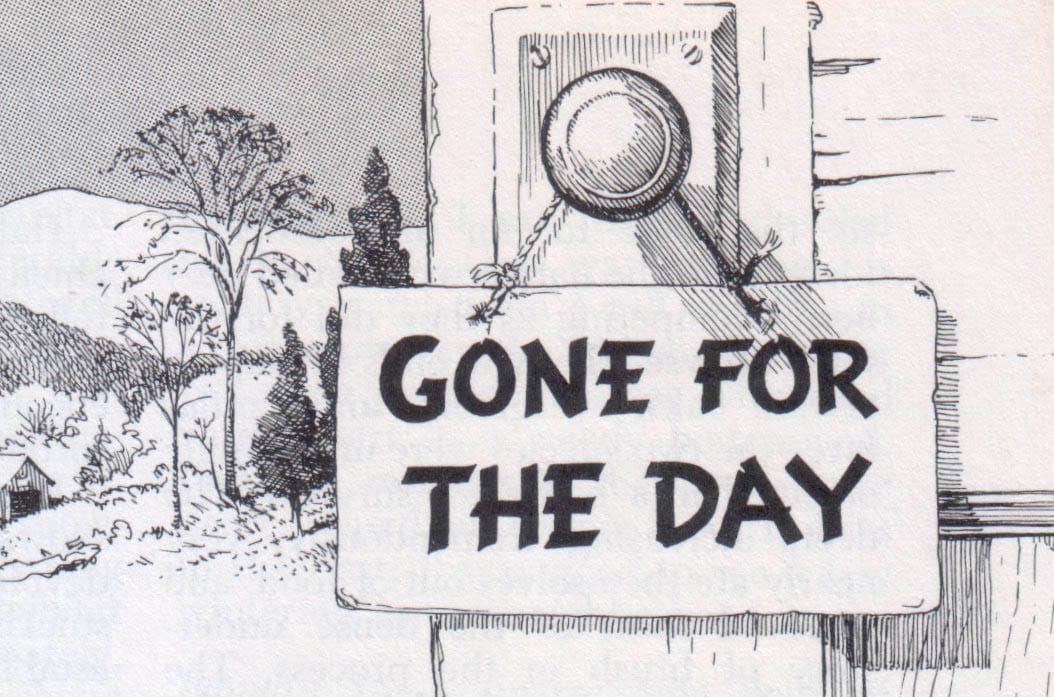This review is written with a GPL 4.0 license and the rights contained therein shall supersede all TOS by any and all websites in regards to copying and sharing without proper authorization and permissions. Crossposted at WordPress & Blogspot by Bookstooge’s Exalted Permission
Title: Notes from Underground
Series: (The Russians)
Author: Fyodor Dostoyevsky
Translator: Garnett
Rating: 1 of 5 Stars / DNF@10%
Genre: Fiction
Pages: 186/19
Words: 50K/5K
I cannot stand when authors write nonsense and expect the readers to parse sense out of it. Dostoyevsky was writing this novel in response to some other popular philosophy book/idea at the time but he couched it in a way that I hated.
So I’m not going to waste my time wading through deliberate nonsense when he could have just stated “Reason X because of reasons 1, 2 and 3”. I dnf’d this at the 10% mark when it became evident what a sham this was. If you would like to waste your time deciphering this, be my guest.
★☆☆☆☆
From Wikipedia.org
The novella is divided into two parts. The title of the first part—”Underground”—is itself given a footnoted introduction by Dostoevsky in which the character of the ‘author’ of the Notes and the nature of the ‘excerpts’ are discussed.
The first part of Notes from Underground has eleven sections:
- Section I propounds a number of riddles whose meanings are further developed as the narration continues.
- Sections 2, 3, & 4 deal with suffering and the irrational pleasure of suffering.
- Sections 5 & 6 discuss the moral and intellectual fluctuation that the narrator feels along with his conscious insecurities regarding “inertia”—inaction.
- Sections 7, 8, & 9 cover theories of reason and logic, closing with the last two sections as a summary and transition into Part 2.
The narrator observes that utopian society removes suffering and pain, but man desires both things and needs them in order to be happy. He argues that removing pain and suffering in society takes away a man’s freedom. He says that the cruelty of society makes human beings moan about pain only to spread their suffering to others.
Unlike most people, who typically act out of revenge because they believe justice is the end, the Underground Man is conscious of his problems and feels the desire for revenge, but he does not find it virtuous; the incongruity leads to spite towards the act itself with its concomitant circumstances. He feels that others like him exist, but he continuously concentrates on his spitefulness instead of on actions that would help him avoid the problems that torment him. The main issue for the Underground Man is that he has reached a point of ennui[7] (boredom) and inactivity.[8] He even admits that he would rather be inactive out of laziness.
The first part also gives a harsh criticism of determinism, as well as of intellectual attempts at dictating human action and behavior by logic, which the Underground Man discusses in terms of the simple math problem: two times two makes four (cf. necessitarianism). He argues that despite humanity’s attempt to create a utopia where everyone lives in harmony (symbolized by The Crystal Palace in Nikolai Chernyshevsky’s What Is to Be Done?), one cannot avoid the simple fact that anyone, at any time, can decide to act in a way that might not be considered to be in their own self-interest; some will do so simply to validate their existence and to protest and confirm that they exist as individuals. The Underground Man ridicules the type of enlightened self-interest that Chernyshevsky proposes as the foundation of Utopian society. The idea of cultural and legislative systems relying on this rational egoism is what the protagonist despises. The Underground Man embraces this ideal in praxis, and seems to blame it for his current state of unhappiness.[9]
Part 2: “Apropos of the Wet Snow”[edit]
The title of Part 2 is an allusion to the critic Pavel Annenkov’s observation that “damp showers and wet snow” were indispensable to writers of the Natural School in Petersburg.[10] Following the title there is an epigraph containing the opening lines from Nekrasov’s poem “When from the darkness of delusion…” about a woman driven to prostitution by poverty. The quotation is interrupted by an ellipsis and the words “Etc., etc., etc.”[10]
Part 2 consists of ten sections covering some events from the narrator’s life. While he continues in his self-conscious, polemical style, the themes of his confession are now developed anecdotally.
The first section tells of the Underground Man’s obsession with an officer who once insulted him in a pub. This officer frequently passes him by on the street, seemingly without noticing his existence. He sees the officer on the street and thinks of ways to take revenge, eventually borrowing money to buy an expensive overcoat and intentionally bumping into the officer to assert his equality. To the Underground Man’s surprise, however, the officer does not seem to notice that it even happened.
Sections II to V focus on a going-away dinner party with some old school friends to bid farewell to one of these friends—Zverkov—who is being transferred out of the city. The Underground Man hated them when he was younger, but after a random visit to Simonov’s, he decides to meet them at the appointed location. They fail to tell him that the time has been changed to six instead of five, so he arrives early. He gets into an argument with the four of them after a short time, declaring to all his hatred of society and using them as the symbol of it. At the end, they go off without him to a secret brothel, and, in his rage, the underground man follows them there to confront Zverkov once and for all, regardless if he is beaten or not. He arrives at the brothel to find Zverkov and the others already retired with prostitutes to other rooms. He then encounters Liza, a young prostitute.
The remaining sections deal with his encounter with Liza and its repercussions. The story cuts to Liza and the Underground Man lying silently in the dark together. The Underground Man confronts Liza with an image of her future, by which she is unmoved at first, but after challenging her individual utopian dreams (similar to his ridicule of the Crystal Palace in Part 1), she eventually realizes the plight of her position and how she will slowly become useless and will descend more and more, until she is no longer wanted by anyone. The thought of dying such a terribly disgraceful death brings her to realize her position, and she then finds herself enthralled by the Underground Man’s seemingly poignant grasp of the destructive nature of society. He gives her his address and leaves.
He is subsequently overcome by the fear of her actually arriving at his dilapidated apartment after appearing such a “hero” to her and, in the middle of an argument with his servant, she arrives. He then curses her and takes back everything he said to her, saying he was, in fact, laughing at her and reiterates the truth of her miserable position. Near the end of his painful rage he wells up in tears after saying that he was only seeking to have power over her and a desire to humiliate her. He begins to criticize himself and states that he is in fact horrified by his own poverty and embarrassed by his situation. Liza realizes how pitiful he is and tenderly embraces him. The Underground Man cries out “They—they won’t let me—I—I can’t be good!”
After all this, he still acts terribly toward her, and, before she leaves, he stuffs a five ruble note into her hand, which she throws onto the table (it is implied that the Underground Man had sex with Liza and that the note is payment). He tries to catch her as she goes out to the street, but he cannot find her and never hears from her again. He tries to stop the pain in his heart by “fantasizing.”
And isn’t it better, won’t it be better?… Insult—after all, it’s a purification; it’s the most caustic, painful consciousness! Only tomorrow I would have defiled her soul and wearied her heart. But now the insult will never ever die within her, and however repulsive the filth that awaits her, the insult will elevate her, it will cleanse her…
He recalls this moment as making him unhappy whenever he thinks of it, yet again proving the fact from the first section that his spite for society and his inability to act makes him no better than those he supposedly despises.
The concluding sentences recall some of the themes explored in the first part, and he tells the reader directly, “I have merely carried to an extreme in my life what you have not dared to carry even halfway.”
At the end of Part 2, a further editorial note is added by Dostoevsky, indicating that the ‘author’ couldn’t help himself and kept writing, but that “it seems to us that we might as well stop here”.










